My Favorite Remedies for Cold & Flu Season
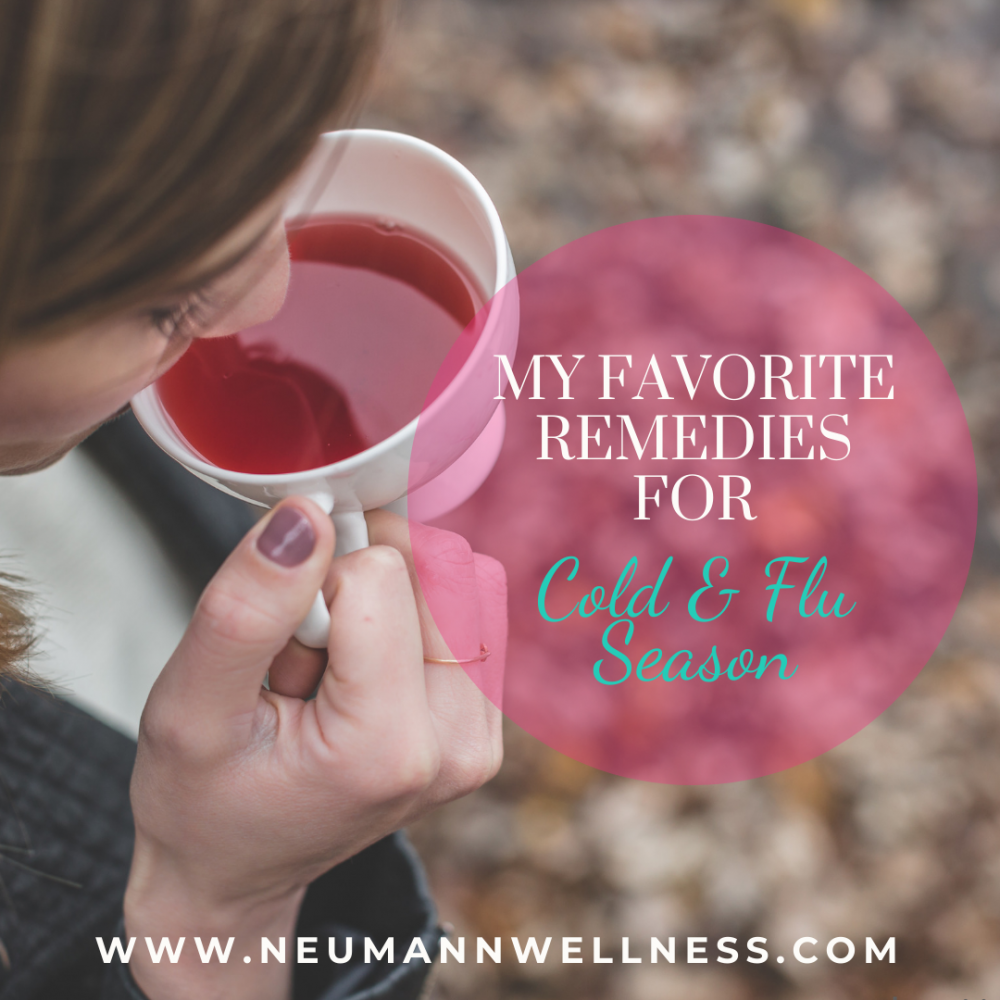
Cold & Flu Viruses are Floating Around You!
It’s that time of year! And it’s inevitable, cold and flu viruses are likely floating around you at this very moment. What can you do to protect yourself this season? In this article I’ll review the exact tips and tricks I use in my very own home to prepare my immune system for battle.
Before we get started though….I want to discuss why high-quality supplements are SO important
Why is it important to purchase high-quality supplements from high-quality vendors? If you didn’t already know, Amazon reported to its consumers in 2019 that they’re likely receiving counterfeit supplements. Which means, you’re wasting your money and putting your health in harms way.
In this article, I go over a number of supplements I recommend for immune health. If you want to avoid counterfeit and harmful products, I recommend you visit my online dispensary and click on “Immune Support” to purchase professional-grade supplements at a reduced price.
My online dispensary, Fullscript, makes it easy to access the information you need about the quality of their products. This transparency, plus, the national & international regulations and policies they follow make them a top notch choice when it comes to purchasing high-quality supplements.
Ok, now that I’ve got off my soap box, let’s get onto the rest of the article…
Cole & Flu Prevention
It goes without saying, “an ounce of prevention is worth a pound of cure.” It’s WAY easier to prevent cold and flu than it is to treat it once you’ve got it. Here I cover a few important prevention tips for you to implement before I even begin to talk about my favorite supplements.

1.) Get Adequate & Restful Sleep
It seems like a simple solution, but the first strategy I always recommend is getting adequate and restful sleep.
Studies show that people are more likely to get sick after being exposed to a virus if they aren’t getting enough sleep. When you get adequate and restful sleep your body is better able to fight off infection (1).
What do I mean by adequate and restful sleep? Adequate sleep is generally 8 hours of rest a night, uninterrupted.
Here’s a few ideas to implement a better sleep routine:
- have a steady, relaxing routine in the evening
- keep consistent bed times and wake times
- boost your exposure to natural light in the daytime
- avoid blue light from cell phones, computers, etc before bedtime
- keep your blood sugar regular throughout the night by eating a balanced dinner
- block any unnecessary from light shining in your bedroom from cell phones, alarm clocks or street lamps
- try adding 300mg magnesium glycinate plus 200mg L-theanine before bedtime
- try adaptogens such as ashwagandha or CBD oil
- try passionflower or lavender tea
2.) Wash Your Hands
Seems pretty basic, right? It’s worth pointing out though that the importance of washing your hands regularly during cold and flu season is paramount to keeping infection at bay.
Wash your hands in hot soapy water for about 20 seconds. If you sing “happy birthday” while washing you’ll get about a 20 second hand wash.
Alternatively, you can use an alcohol-based hand sanitizer. Avoid “anti-bacterial” hand sanitizers as these can breed scary resistant germs and contain unhealthy chemicals like triclosan. A couple of great brands are Dr. Bronner’s Organic Hand Sanitizer or Everyone Natural Hand Sanitizer.
Additionally, avoid touching your nose, eyes, or mouth anytime you’re out in public.

3.) Manage Stress
Again, it seems like another basic solution but chronic stress (real or perceived) makes it hard for your immune system to ward off invading viruses.
If you’re under chronic stress from juggling too many things at once, your body reacts by increasing the output of a hormone called cortisol.
Cortisol, though touted as a negative hormone, does have an important and positive role in stressful situations–it keeps inflammation from getting out of hand, it regulates the metabolism of macronutrients, and it controls the responsiveness of your immune system.
However, when constant cortisol output is triggered from long-term stress it can suppress your immune system and leave you vulnerable to cold and flu viruses (2).
What can you do to de-stress?
- have a meditation & guided imagery practice
- practice deep breathing
- implement a simple yoga routine
- get outside into nature regularly
- socialize with friends or loved ones
- move more and get physical activity
- schedule routine breaks from your computer screen
- turn on some music
- journal
Other (more challenging) ways to de-stress would be to really dig deep and investigate what’s not working for you in your life and what can you do to change it.
Making yourself and your health a priority is paramount in managing stress. If you’re constantly having to multi-task by doing things like eating behind the steering wheel of your car to make the next meeting, well something is seriously wrong! Don’t be afraid to investigate what you can do to make these major life shifts.
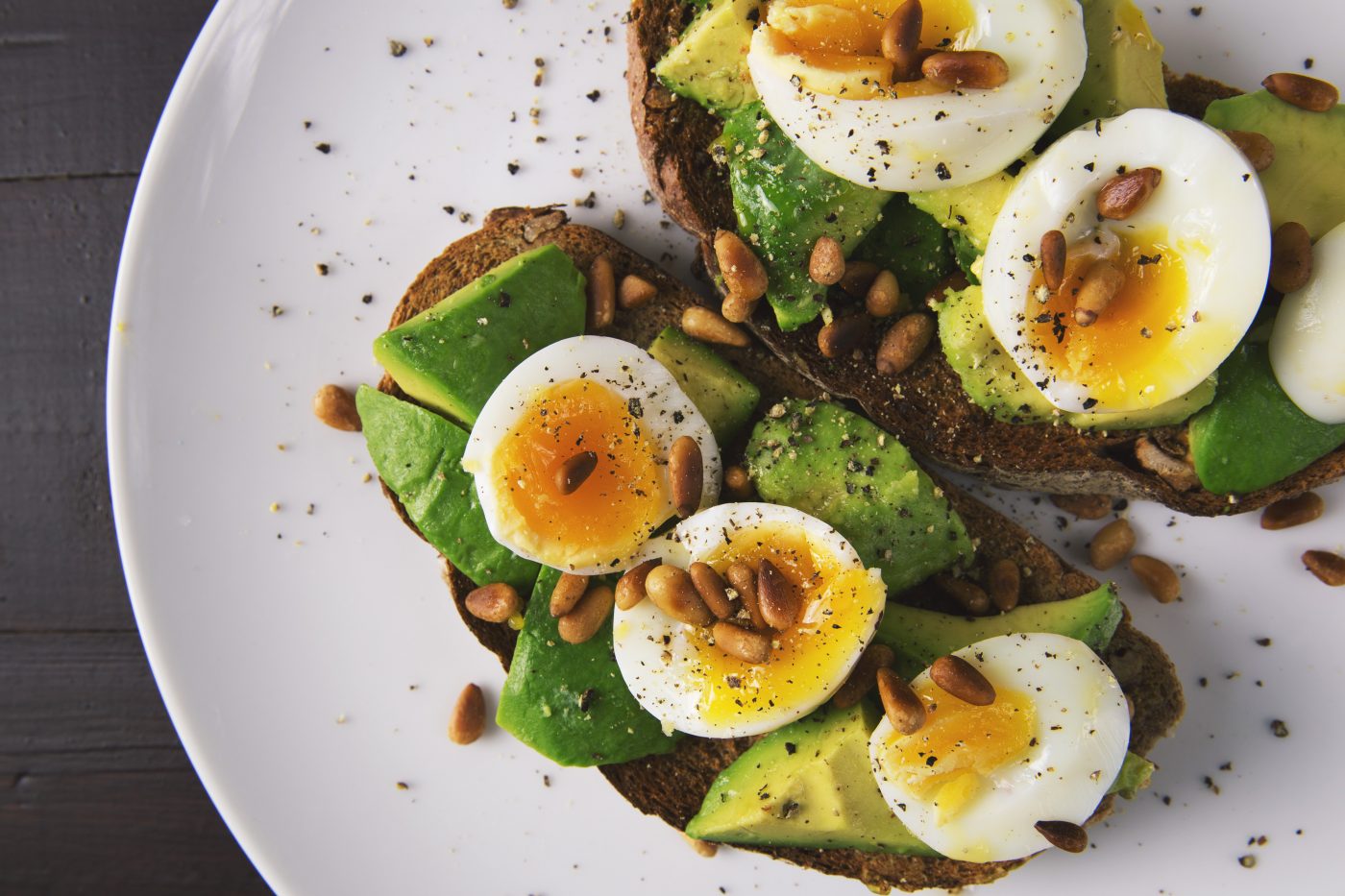
4.) Get Proper Nutrition
This can mean a lot of things and could be a whole blog post of its own. In general, proper nutrition means getting adequate micronutrients, macronutrients (protein, fat and carbs), and hydration your body needs to function optimally.
These recommendations will vary depending on your age, activity level, medical history and genetics. You’ll also want to take extra care to avoid any food sensitivities that could send your immune system into overdrive for all the wrong reasons.
This is where a Registered Dietitian (That’s me!) can help you navigate what optimal nutrition is for your particular health scenario. If you’re interested in learning more about what optimal nutrition is for you, you can start by scheduling a complimentary consult with me.
Now for my favorite supplements & remedies to prevent and treat cold & flu…
1.) Zinc
Zinc is important in immunity because it assists in the normal development of your immune cells. In general, those who’re already deficient in zinc would likely see the most benefit with zinc supplementation. However, there are studies showing the general population can benefit as well (3).
Zinc Lozenges
In a few different studies, in subjects who consumed zinc acetate lozenges in doses of >75mg/day saw a 42% reduction in cold duration (4). That’s pretty significant! I don’t know about you, but I sure wouldn’t mind if my cold lingered 42% fewer days.
At the first sign of a cold, I recommend sucking on a few zinc lozenges spaced evenly throughout your day to total approximately 75mg. You can do this for one or two days.
My Favorite Zinc Lozenges:
Important Considerations
Taking large quantities of zinc (>50mg/day) over a period of weeks can interfere with your copper levels. Therefore, it is prudent to avoid over-supplementation. I recommend stopping supplementation after only a few days of high dosing unless micronutrient testing has verified you have low zinc levels.
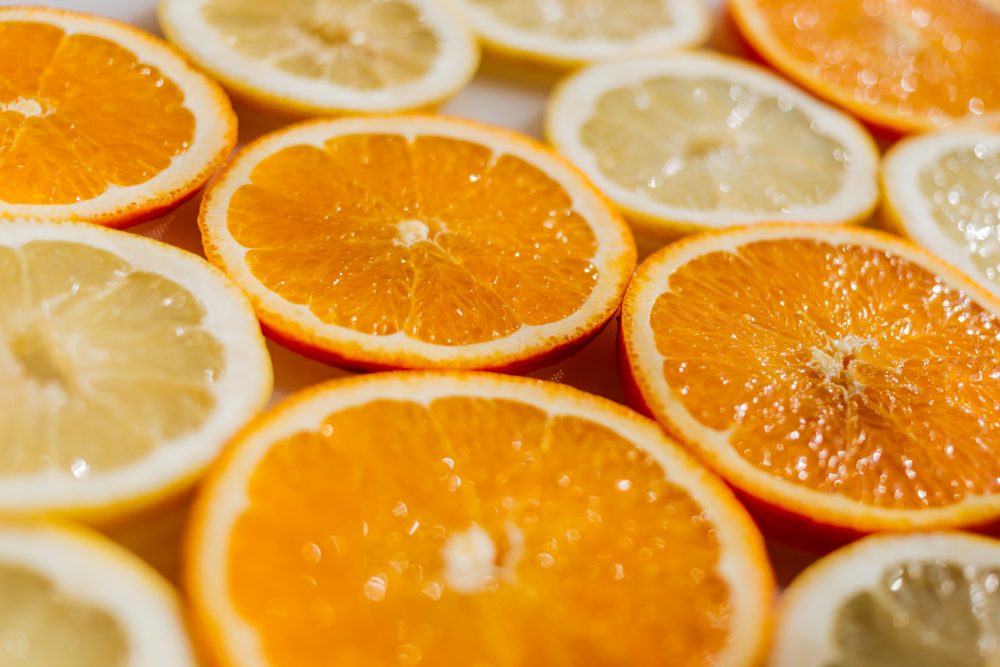
2.) Vitamin C
Vitamin C has long been touted for its ability to fight the common cold. But is it effective for everyone?
That depends if you’re talking about cold prevention or cold treatment, how active you are, and how much stress you experience. Let’s go over each scenario in detail.
Vitamin C taken for cold prevention
When we talk about cold prevention we’re talking about preventing a cold from even happening.
For cold prevention, the scientific consensus is that regular (aka daily) supplementation with vitamin C for the general population doesn’t appear to reduce the number of colds but DOES shorten the duration of colds (5,6).
For the general population, a daily dose of 1,000 mg/d of vitamin C can shorten the duration of colds in adults by about 6% and doses at ≥2,000mg/day can shorten duration by 21%. Thus, higher doses are associated with greater effects in cold prevention (6).
However, for endurance athletes, daily vitamin C supplementation at 600mg-1,000mg has actually been shown to reduce the number of colds they experience in half. This is due to the ability of vitamin C to reduce levels of free radicals generated through intense exercise (6).
Vitamin C taken for cold treatment
When we’re talking about cold treatment, we’re talking about a therapy following the onset of a cold.
For cold treatment one study found that those who supplemented 1,000-1,500mg/d of vitamin C for 5 days at onset of a cold experienced less severe colds and spent 25% fewer days indoors as a result (6).
Stress and Vitamin C deficiency
For those that are faced with chronic mental or physical stress, it’s likely their adrenal glands are using up vitamin C at a higher rate than normal. That’s because the adrenal glands have among the highest concentrations of vitamin C in the body– and it’s integral in the stress response (7).
As a result, those individuals who experience intense stress are likely to see the greatest benefits in supplementing with vitamin C for cold prevention and cold treatment (5).
If you’re going through a particular bout of intense stress you might want to temporarily pull in some vitamin C to replenish your adrenal glands and boost your immune system.
The bottom line
Those who’re deficient in vitamin C will benefit most from supplementation in addition to those under intense stress and endurance athletes.
Otherwise:
- Supplementing vitamin C preventatively at 1,000mg-≥2,000mg daily can shorten the duration of a cold should you experience one.
- For 5 days from the onset of a cold, a daily dose of 1,000mg-1,500mg of vitamin C can reduce the intensity of your cold.
- For endurance athletes, a daily preventative dose of 600mg-1,000mg vitamin C can reduce in half the number of colds you encounter.
My Favorite Vitamin C Supplements:
- Metabolic Maintenance Buffered Vitamin C Capsules
- Integrative Therapeutics Buffered Vitamin C Capsules
- Quicksilver Scientific Liposomal Vitamin C
- Designs For Health Liposomal Vitamin C
- Metabolic Maintenance Reduced Acidity Vitamin C Powder
A final consideration with Vitamin C supplements.
You’ll want to consume higher dosages in divided doses to boost absorption and minimize GI upset (8). For example, 500mg taken 4 times daily to get your 2,000mg dose
Sensitive people could experience GI upset so it’s important to start at a low dose and slowly increase to the full dose. Start at 500mg for 3 days and increase to 1,000mg for 3 days and so forth until you reach bowel tolerance.
Those predisposed to kidney stones or those with iron overload (such as in hemochromatosis) will want to avoid high dose vitamin C supplementation (8).
Vitamin C can become oxidized easily which would create more harm than benefit. It’s important to check expiration dates, buy small containers of only what you’ll use for the season, refrigerate liquid versions, and keep containers tightly closed.

3.) Echinacea
Echinacea is a very popular flowering botanical herb hailing from the daisy family. Native Americans have used it for centuries to treat various ailments.
These days it’s most popularly known for its effects in fighting off the common cold.
How does it work?
Echinacea makes our immune cells more efficient at attacking viruses and reduces overall inflammation in the body.
Studies show that echinacea can increase phagocytosis (the consumption of invading organisms by our white blood cells) by 20-40%.
It can be effectively used for treating upper respiratory infections, the common cold, and flu. Echinacea is not as effective when used as a preventative treatment for these same conditions (9).
Echinacea Dosing
I recommend Echinacea in tincture form. You’ll want to take 1/2 of a teaspoon (or 2-3 dropperfuls) mixed with a small amount of water in a shot glass 3 times per day as soon as you feel symptoms coming on.
My Favorite Brands of Echinacea Tinctures:
- Red Moon Herbs Echinacea (locally made in Asheville, NC)
- Echinacea by Herb Pharm
- Echinacea Supreme by Gaia Herbs
If you like tea, then Traditional Medicinals echinacea plus is a great brand to have handy.
Important Considerations with Echinacea
There are no long-term studies confirming the safety of prolonged use of this herb. I would advise limiting the use of Echinacea to 8 weeks at a time at most.
Though information is conflicting, it’s also not advised for those taking immunosuppressant drugs or for those with an autoimmune conditions (9).
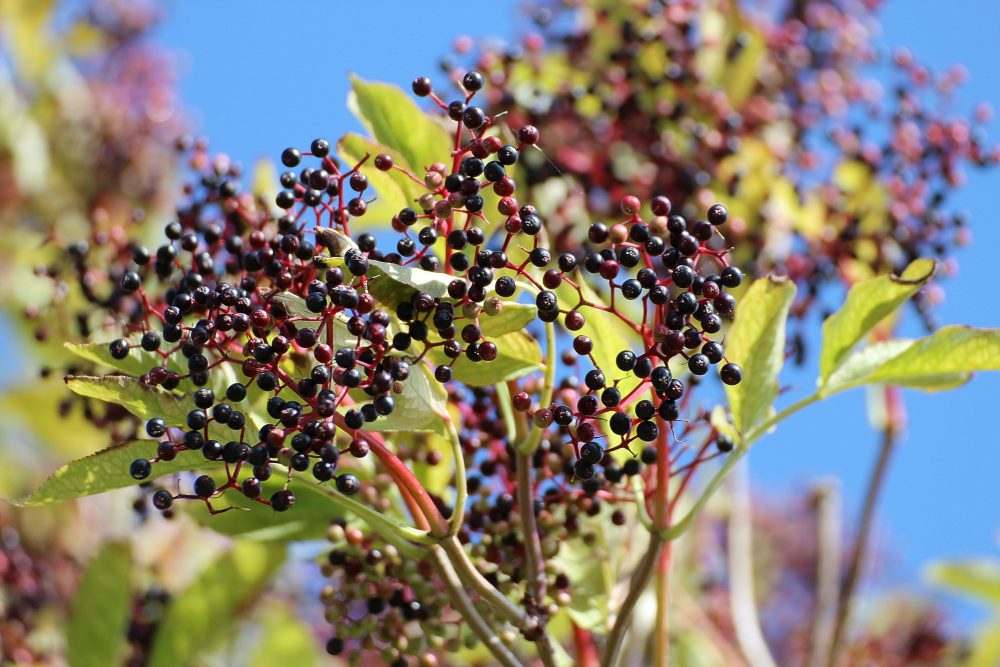
4.) Elderberry
Elderberry has been widely used for hundreds of years in the treatment of cold and flu symptoms.
It acts as an antiviral by inhibiting virus replication, enhancing cytokine production (regulating your immune response), and delivering a high dose of antioxidants from flavonoids (10).
Frequent Fliers
If you’re a frequent flier, you know how stressful airline travel can be. Not to mention, the chance of you coming down with a cold or flu virus is exponential.
One study looking specifically at air travelers found that Elderberry when used preventatively (taken before onset of symptoms) can reduce cold duration and severity (11).
Subjects who took two to three x 300mg elderberry capsules 10 days before travel and up to 5 days after arriving at their destination experienced about a 2 day shorter duration of their cold and noticed a reduction in their symptoms.
Elderberry Dosing
For those that prefer capsules as mentioned in the above study, a good brand is NOW Foods Elderberry Extract 500mg. It is my opinion that liquid syrups and extracts might be better absorbed though.
Typical recommended use of elderberry for the general population, is starting at the first sign of symptoms and for 3-5 days thereafter. Dosage of elderberry syrup is 1-2 tablespoons mixed with hot water daily (9). My favorite brand of Elderberry Syrup is Black Elderberry Syrup by Gaia Herbs.
Another option is to take it in tincture form which can be easier to carry around with you while traveling. Dosage recommendation is about 30 drops, 3 times per day. My favorites are Black Elderberry by Gaia Herbs or Red Moon Herbs Black Elderberry Elixir.
5.) Fire Cider
Fire cider, as the name suggests, packs heat from raw alliums (onion & garlic), ginger, horseradish and chile peppers in a cider-vinegar tonic. It’s a traditional folk recipe designed to kick start your immune system when onset of symptoms arise.
This anti-inflammatory elixir of immune boosting herbs and foods are fermented together and act as an anti-viral and decongesting agent.
How it works
Fire Cider, as a whole, has not been studied in science for immune modulating qualities but if you break apart the components of this elixir you’ll see that each of the foods, herbs, and nutrients can act on the immune system in various ways.
For example, garlic can boost the functioning of the immune system by enhancing macrophage, lymphocyte, and natural killer cell action in the body which helps prevent and fight colds (12, 13, 14).
Turmeric contains a compound called curcumin which has been shown to have anti-influenza activity in cell cultures (15).
And did you know that 70-80% of our immune tissue is found in the gut? Incorporating fermented foods such as fire cider can provide support by diversifying and boosting your gut bacteria. This, in turn, enhances your ability to fight off infection by stimulating immune tissue in your gut (16).
One recipe I make every year is this one by Mountain Rose Herbs. I make a batch each season and store it in a dark space to ferment for a few weeks before consuming.
If you need something sooner or don’t have time to make your own, Pure Fire is a brand made locally in Asheville, NC.
Dosing Fire Cider
To use as a daily preventative during cold & flu season, a typical dose is one teaspoon at a time –it’s incredibly potent! For the treatment of colds I’d recommend one teaspoon three times per day for 3-5 days as you start to feel symptoms coming on.
Contraindications
I would not recommend fire cider for those with sensitive digestive tracts or those with GERD or reflux. It is a potent and spicy beverage that could aggravate some individuals.
Also, long term use of these concentrated products has not been studied. So, as always, use in moderation.
6.) Other Products I Keep Handy
- Andrographis: an effective antimicrobial herb for the prevention and treatment of colds, bronchitis, viral sore throat, and sinus infections. Andrographis has been shown to be especially helpful in the treatment of colds, especially when started within 72 hours of the onset of symptoms (17).
- Green tea, black tea, rooibus tea: are teas highest in polyphenols which can stop flu infections from taking hold (18).
- Probiotics: those that contain lactobacillus strains can reduce the number of days your cold lingers when supplemented daily for at least 12 weeks (19).
- Bone Broths: contains a number of substances with beneficial properties that can boost the functioning of your immune system (20, 21).
- Vitamin D: daily or weekly supplementation protects against acute respiratory infections from cold and flu viruses (22).
- Vitamin A: was coined “the anti-infective” vitamin because of its importance in the normal functioning of the immune system. It maintains the integrity of mucus membranes, which are at the front line of our defenses against viral infections (23).

That’s It!
If you’ve made it this far in my blog post then I know you’re SO into what I’m saying. THANK YOU for reading, I genuinely hope this information was insightful and helpful in your cold and flu season journey.
Just to re-cap, in addition to preventative tips like getting adequate sleep, washing your hands, managing stress, and getting the right nutrients, you can also boost your immune system with a number of herbs and supplements.
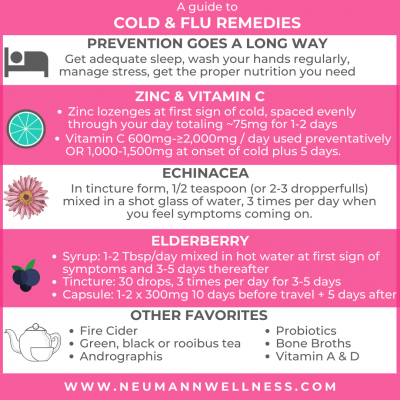
As a reminder, all of the professional-grade supplements I link to in the article can be purchased from my online dispensary and under “Immune Support” at a reduced price. All orders over $50.00 get free shipping.
Wishing you a healthy and happy winter season!
If you’re a woman looking to super-charge your health and learn what optimal nutrition is for you, then I’ve got you covered! To learn more about my 12 week all-inclusive programs, get started here!
Note: The remedies discussed here are for general education purposes only and should not be used in place of medical advice from a licensed health professional. As always, consult with your health provider before implementing any kind of supplementation protocol.
Sarah Neumann Haske, MS, RDN is a Digestive Health Dietitian and owner of Neumann Nutrition & Wellness, LLC. Her practice helps women heal their gut using a root-cause approach to their health. As a result of her program, her clients are able to come off medications, feel more energized, and live a radiant care-free life. If you’re interested in finding direction and accountability while discovering freedom from your digestive issues, then schedule your free call with Sarah now.

References:
1.) https://www.ncbi.nlm.nih.gov/pmc/articles/PMC3256323/
2.) Book: The Adrenal Thyroid Revolution by Aviva Romm, MD.
3.) http://lpi.oregonstate.edu/mic/minerals/zinc
4.) https://www.ncbi.nlm.nih.gov/pmc/articles/PMC3136969/
5.) http://lpi.oregonstate.edu/mic/vitamins/vitamin-C
6.) https://www.ncbi.nlm.nih.gov/pmc/articles/PMC5409678
7.) http://ajcn.nutrition.org/content/86/1/145.full
8.) Book: Nutritional Medicine 2nd Edition by Alan Gaby, MD
9.) Book: Herbal Medicine by the American Botanical Council.
10.) http://cms.herbalgram.org/press/files/elderberry-scr.pdf
11.) http://www.mdpi.com/2072-6643/8/4/182
12.) https://www.ncbi.nlm.nih.gov/pmc/articles/PMC4417560/
13.) https://www.umm.edu/health/medical/altmed/herb/garlic
14.) https://www.ncbi.nlm.nih.gov/pmc/articles/PMC4417560/#B5
15.) https://www.ncbi.nlm.nih.gov/pmc/articles/PMC4022204/
16.) https://www.ncbi.nlm.nih.gov/pubmed/24499072
17.) https://www.ncbi.nlm.nih.gov/pmc/articles/PMC5544222/
18.) https://www.ncbi.nlm.nih.gov/pubmed/8215301
19.) https://www.ncbi.nlm.nih.gov/pubmed/20803023
20.) https://www.sciencedaily.com/releases/2000/10/001018075252.htm
21.) https://www.townsendletter.com/FebMarch2005/broth0205.htm
22.) https://www.sciencedaily.com/releases/2017/02/170216110002.htm
23.) https://lpi.oregonstate.edu/mic/vitamins/vitamin-A#reference23
